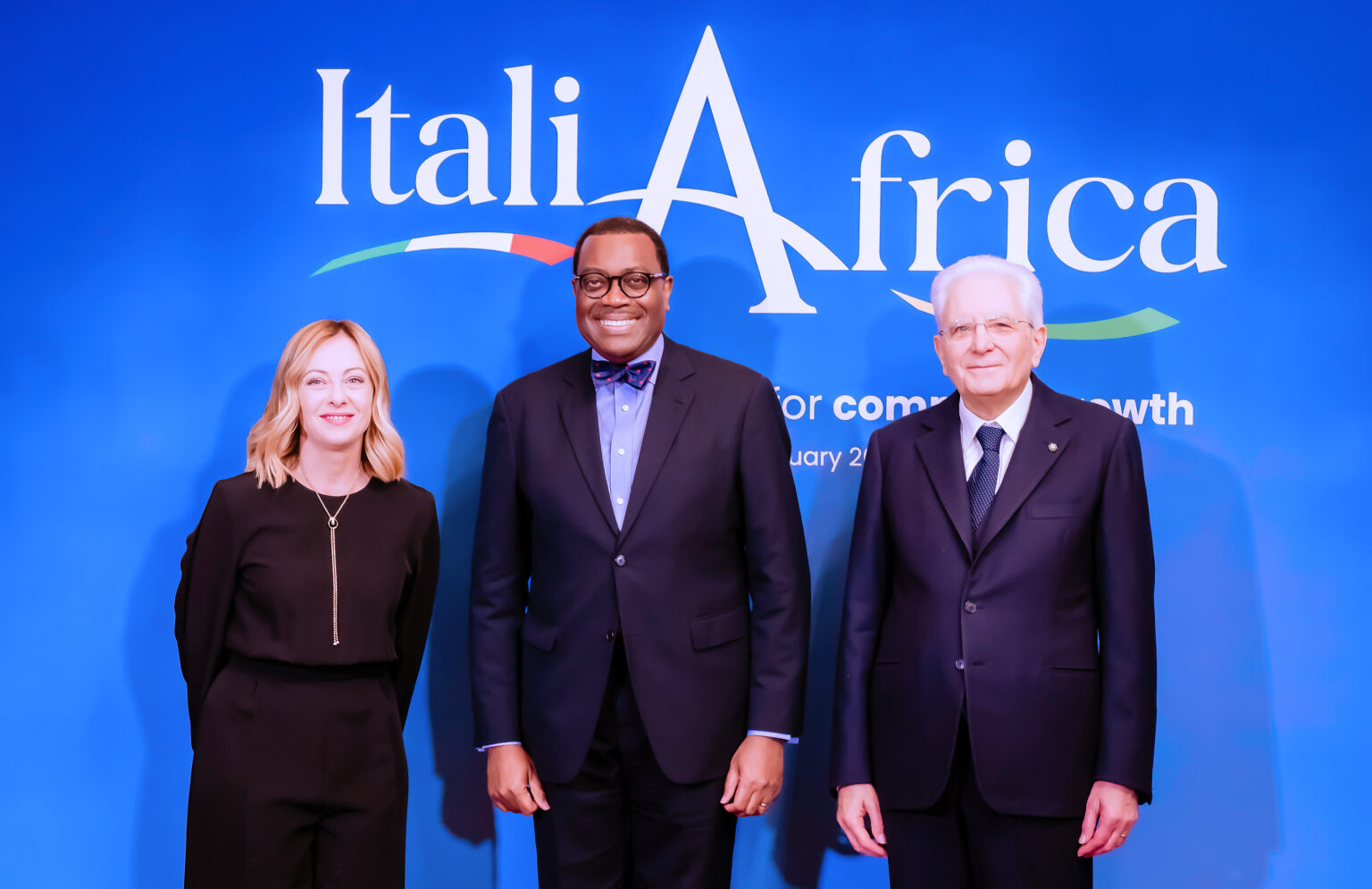- Italy’s initial pledge of €5.5 billion ($5.95 billion) also includes guarantees, according to Italian Prime Minister Georgia Meloni.
- AU Commission Chairperson Moussa Faki welcomed the pledge, while noting that prior consultation on the Mattei plan with the African continent would have been desirable.
- The plan was named after Eni’s founder, Enrico Mattei, the initiative which seemed to be aimed at encouraging a holistic approach to dealing with African countries of interest to Italy.
Italy has unveiled a close to $6 billion funding plan to support African development, a move geared towards strengthening bilateral ties. The Italian government noted that the funding would go a long way to curb African emigration to Europe.
The funding was unveiled during the one-day Italy-Africa summit that took place in Rome, Italy, bringing together several African heads of state and high-profile global leaders in the development space.
The initial pledge of €5.5 billion ($5.95 billion), also includes guarantees, according to Italian Prime Minister Georgia Meloni.
“We believe it is possible to envision and write a new chapter in the history of our relationship, a cooperation among equals, far from any predatory imposition or charitable stance towards Africa,” she said.
“There is a natural inclination for Italy to be a bridge between Africa and Europe. The whole world cannot think about the future without Africa.”
Read also: Delayed financial commitments leaving Africa hungry
Italy-Africa cooperation
African Union Commission Chairperson Moussa Faki welcomed the pledge, while noting that prior consultation with the African continent would have been desirable, particularly when the ‘Mattei’ Plan was being drafted. He said the plan, nonetheless, aligns with Africa’s priorities.
Although the specifics of the plan remain undisclosed, some experts believe that among its goals is the need to enhance energy cooperation with African countries and help them in different areas, including health and education.
Others have argued that the main purpose is to address the root economic causes of mass migration from Africa.
The plan was named after Eni’s founder, Enrico Mattei, the initiative which seemed to be aimed at encouraging a holistic approach to dealing with African countries of interest to Italy. It also aims to turn Italy into an energy hub between North Africa and Europe.
This is through the construction of new pipelines, meaning Italy would become an exporter of both natural gas and hydrogen to countries such as Germany and Austria, and the gateway linking North Africa to Central and Northern European countries.
Given Europe’s vital role for North African trade, these deals could become pivotal in securing long-term strategic gains for both sides of the Mediterranean.
Read also: AfDB opens $2Bn social bond amid strong global investor appetite
AfDB stance and commitments
Speaking at one of the sessions on economic and infrastructure cooperation, AfDB President Dr. Akinwumi Adesina said Africa’s economic trajectory was compelling, providing a reason to attract more Foreign Direct Investments (FDIs).
“With a population of 1.4 billion, the largest youth population in the world, the largest renewable energy sources in the world, the largest deposits of critical minerals and metals globally, and the largest share of uncultivated arable land left in the world, Africa will determine the future of the world,” Adesina said.
He further underscored the continent’s economic resilience, noting that despite global economic headwinds of climate change, conflicts, and a health pandemic, the continent had stayed strong, with real GDP growth of 4.1 percent in 2022.
“This is higher than the global average of 3.5 percent for the same period.”
To address a key challenge to Africa’s accelerated development, notably a large infrastructure financing gap of roughly $68–108 billion annually, he told leaders that the AfDB had invested $44 billion in infrastructure over the last seven years.
He said this was for the development of ports, railways, transport corridors, energy, and digital infrastructure.
Nevertheless, he commended the Italian government for the Rome Process Financing Facility, which will provide €100 million (90 per cent of which is concessional financing) towards support for infrastructure in Africa.
This is especially for renewable energy, energy efficiency projects, water and sanitation, and agriculture initiatives, as well as vocational training and job creation.
Adesina addressed the challenge of illegal migration from African countries, stressing that it was critical to continue supporting economic growth and development of African nations, reducing fragility, and building resilience.
Read also: Big funding squeeze to dampen Africa’s growth – IMF




